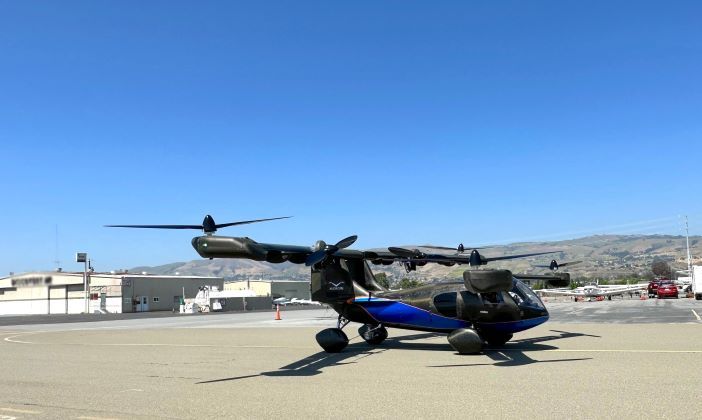California-based Aska is flight testing its flying car and progressing with FAA Type Certification.
The company received a Certificate of Authorization (COA) and Special Airworthiness Certification from the FAA for its prototype of the four-seater A5 at the start of the year. It has also been conducting on-street driving tests this year after a successful ground testing program last year.
The Aska A5 is around the size of an SUV and is billed by the company as a “drive & fly eVTOL” that can travel by road and air. The hybrid electric vehicle is fueled by gasoline, features six motors for flight and has a range of 250 miles (400km).
The A5 is designed to takeoff both vertically and horizontally so it can be used at the maximum number of airports possible.
Guy Kaplinsky, CEO and co-founder of Aska said, “We have achieved a series of technological milestones in the first quarter of 2023: debuting the first full-scale working prototype of the ASKA A5 in January, successfully performing field and driving tests, and obtaining the COA and Special Airworthiness Certification for our pre-production prototype.
“The data we are harvesting from flight testing is enabling us to make progress towards our type certification. We already completed the initial phase and are progressing towards our next milestone, G1 status.”
According to Aska, the A5 is the world’s first flying car to start the type certification process with the FAA. This Special Airworthiness Certificate signals that ASKA A5 has successfully met all FAA safety requirements.
G-1 is a critical milestone in the FAA cross-validation process, establishing airworthiness and environmental requirements necessary to achieve FAA Type Certification Validation.
Maki Kaplinsky, cofounder/chair and chief operating officer at Aska said, “The airworthiness certification validates our efforts to develop a drive and fly eVTOL with an emphasis on safety. “One of the significant advantages of a roadworthy eVTOL, like the A5 is that it does not require the modification or electrification of existing airports since it can maximize the use of today’s infrastructure, such as the many charging stations located around us.”
Aska said it has US$50 million of pre-orders for the A5.





